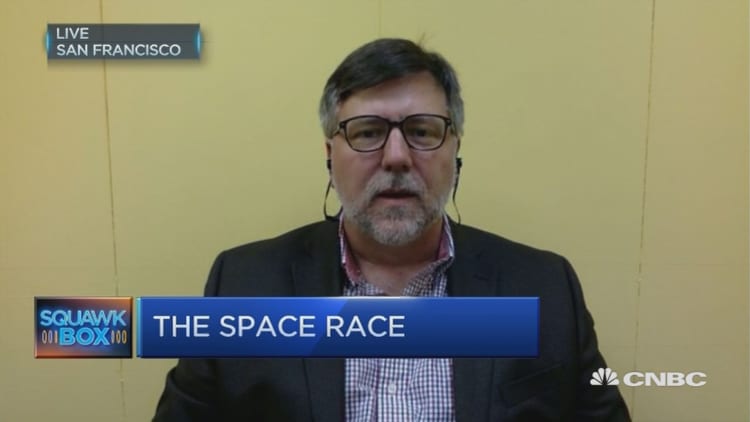China is developing a system to recover parts of rockets used in space launches to bring down costs and make its space program more commercially competitive, according to researchers involved in the project.
The system would bring the rocket engine and booster safely back to the ground so they can be reused in future launches. Besides saving operational costs, the recovery would also reduce the threat of debris falling to the ground, the researchers said.
The recovery system is under development at the China Academy of Launch Vehicle Technology in Beijing.
More from the South China Morning Post:
China to develop space rockets to launch from planes
China's winter pollution a product of climate change, researchers say
China 'could prevent 3 million deaths a year if air quality standards tightened'
It involves using a set of multiple parachutes, which are stored in the first stage of the rocket, which is released from the rest of the craft before it burns its way through the Earth's atmosphere.
An air bag inflates under the discarded part of the rocket, which cushions impact when it finally hits the ground.

The technology differs from the system used by the commercial company SpaceX on its Falcon 9 rockets. As the first stage of Falcon 9 falls back to earth, its engines reignite when it reaches a speed of 3km per second, slowing it down to reduce impact as it lands vertically on the ground.
Deng Xinyu, a researcher on the Chinese rocket recovery program, said in an article on the academy's website that vertical landing involved many challenges and was extremely difficult to achieve.
SpaceX has performed a series of successful vertical landings which demonstrate the technology's feasibility, but Chinese researchers have rejected the approach, the article said.
Deng wrote that the vertical landing system needed carrying extra fuel for landing, which meant rockets could only carry smaller payloads into space.
The Falcon rocket also uses nine small rocket engines to generate thrust, which reduces the launch vehicle's overall reliability and efficiency. "The mainstream trend of modern rocket development is to increase the thrust and reduce the number of rocket engine. That is also why China, as well as Airbus, Boeing and Lockheed Martin did not use the technology," Deng said.
China's government has funded research into both approaches before concentrating efforts on the parachute system.
A large scale test experiment using the technology was carried out two years ago.
Bao Weimin, professor of aerospace technology at Peking University and a science adviser to the China Aerospace Science and Technology Corporation, told the state-run news agency Xinhua this week that the reuse of rockets was essential to cut costs.
"Compared to mainstream rockets overseas, Long March rockets in China have lower costs, but with the increase of Chinese space exploration, the costs must be trimmed further," he was quoted as saying.

China has yet to officially rule out the vertical landing technology to recover rockets, according to Xinhua. A final decision will be made before 2020, the report said.
The Chinese launch vehicle academy researchers have said on their website that the parachute-airbag system will be assisted by multiple censors and a sophisticated flight control system to guide the descent. The final goal was to hit a small recovery zone as precisely as the vertical landing technology can achieve.
However, Professor Sun Yi, the director of the aerospace science and mechanics department at the Harbin Institute of Technology, said he had concerns about the parachute-assisted landing system as it could easily miss a target area in high winds.
"Falcon 9 can be brought back to the launch pad, or even land on a ship. With a parachute you may hit a mountain top or end up in thick forest on a tropical island," he said.
Sun also doubted whether the air bag could absorb enough impact during the landing of a heavy rocket.
"Even a mild shock can cause damage to the components in rocket engines," he said.

